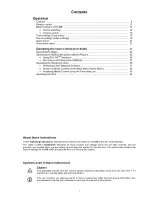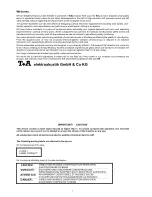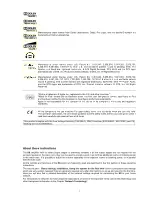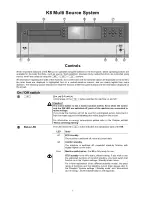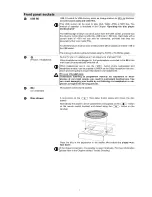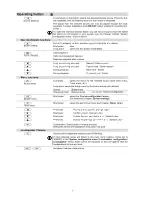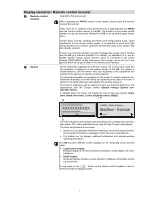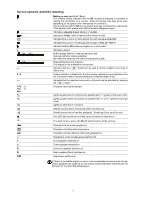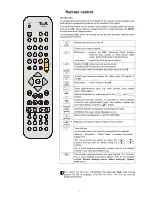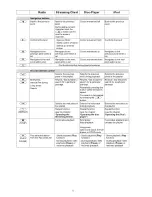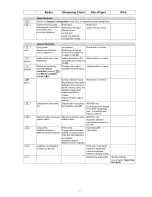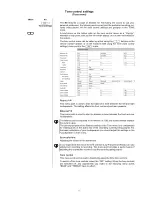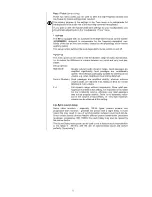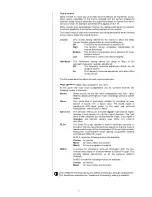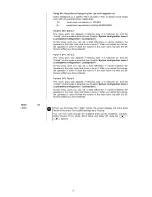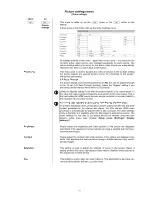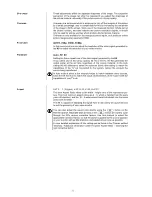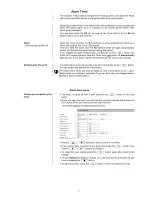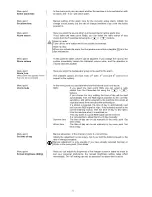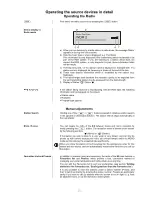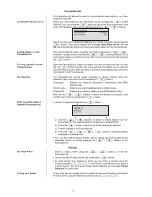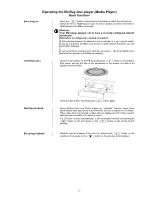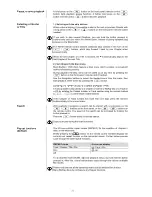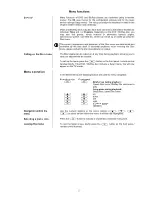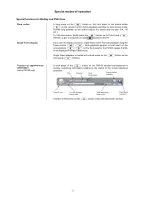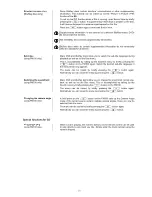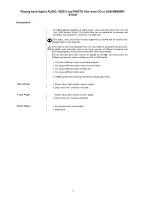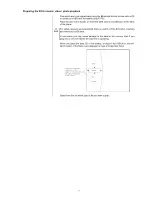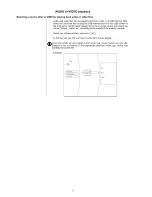
17
Dolby Volume
Dolby Volume is a new type of process which maintains an impression of con-
stant volume regardless of the source selected and the current programme
material. Dolby Volume eliminates the major fluctuations in volume level which
can occur when, for example, advertisements appear on the TV.
Dolby Volume also automatically matches the reproduced frequency response
to suit the sensitivity of the human auditory system at low volumes.
The overall result is improved naturalness and comprehensibility when listening
at low volume, below the original volume.
Leveler:
The Leveler setting determines the extent to which the Dolby
Volume function compensates for volume differences.
Off
The Dolby-Volume function is switched off
High
The function almost completely compensates for
volume differences
Medium
The function compensates about half-way for major
jumps in volume
Low
Differences in volume are reduced slightly
Half Mode:
The “Half-Mode” setting affects the range of effect of the
automatic frequency response adjustment.
Off
The frequency response adjustment affects the full
range of volume.
On
The frequency response adjustment only takes effect
at low volume.
The K8 remembers this setting for each source separately.
Mode (SRND Processing)
(loudspeaker playback)
At this point, the main room loudspeakers can be switched between the
following modes of operation:
Stereo:
Stereo sound, via the two main loudspeakers only (left / right).
Ideal for playing stereophonic music recordings without a screen
display.
Disco:
This sound field is particularly suitable for providing an even
spread of sound over a dance area. The sound signal is
reproduced with equal power by the main and surround
loudspeakers, without echo or delay.
Surround:
The decoder detects an encoded
digital
multi-channel signal,
decodes it and passes it to all the output channels. The front
panel screen displays the current decoder mode. If the signal is
analogue
, the decoder always uses Dolby Pro Logic IIx
decoding.
PL IIx:
The
Dolby Pro Logic process is used to generate surround in-
formation from the two-channel music signal, so that the music is
reproduced through all the loudspeakers of the surround system.
Particularly recommended when playing programme material
encoded with Dolby Pro Logic.
IN PL II. mode the following choices are available:
Cinema
for movies
Music
for music videos and concert.
Matrix
for mono programme material
NEO:6
A process for generating surround information from the two-
channel audio signal, in a similar manner to Dolby Pro Logic. This
provides spatial reproduction via all the surround system’s
channels.
In NEO:6 mode the following choices are available::
Cinema
for movies
Music
for music videos and concerts
The SRND Processing setting only affects reproduction through loudspeakers.
For headphone operation the “Headphone Processing” setting is available.
Содержание K8
Страница 1: ...Software Version V 1 5 Bestell Nummer Order No 9103 0433 UK USER MANUAL K8...
Страница 2: ...2...
Страница 46: ...elektroakustik GmbH Co KG Herford Deutschland Germany...

